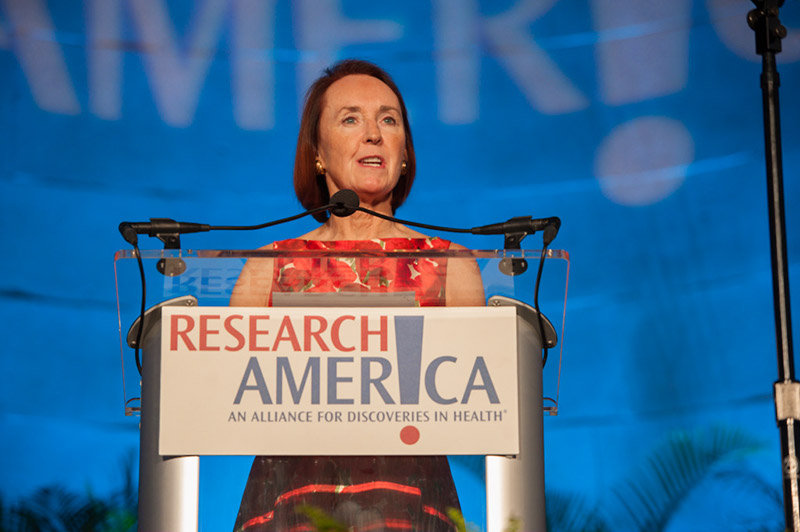Yesterday, Tomorrow, and Every Day

Dear Research Advocate,
You may have paused yesterday in solidarity with the young scientists who galvanized the #ShutDownSTEM movement to listen and reflect on your personal and your organization’s role in ending racism; I did. The very first research project I was involved in worked hard to recruit its study volunteers from a diverse community; we were only modestly successful. That was more than 40 years ago; ensuring diversity in clinical trials is still a major obstacle. Overcoming health disparities is a related challenge, one that calls for — no, demands — far greater attention.
Witness COVID-19. We may not know all the factors that are causing dramatically disproportionate harm to racial and ethnic minorities, particularly to African Americans, but we do know disparate harm was predictable. Previous research on H1N1, MRSA, hospital-acquired complications, pneumonia, measles, infectious threats generally, and relevant chronic diseases (I could go on) provided the foreshadowing. Factoring this reality into the COVID-19 response sooner could have saved lives; doing so going forward should not be an option: it should be an imperative.
Research!America is committed to being part of this effort. Science has an important role to play in disempowering racism and solving the deeply embedded problems it has engendered. The research community itself has work to do to emerge as a truly inclusive ecosystem, fully embracing new and diverse voices who will increase the societal benefit science delivers.
On Capitol Hill: The timing of moving forward with Fiscal Year 2021 appropriations and, separately, COVID-19 supplemental appropriations, seems firm. House appropriators will hold FY21 markups and Floor debate during July, with Senate appropriators starting their markups the week of June 22, 2020.
Senate Republican leadership has reiterated they will not start talks around a fifth COVID-19 supplemental funding bill until mid to late July. The fifth supplemental is critical to science because it is the most likely vehicle for the funding needed to restart research stalled or reprogrammed during the COVID-19 pandemic.
Based on conversations with Congressional offices, we know that two challenges are impeding broadscale support for research relief funding: 1) a lack of compelling examples illustrating how non-COVID-19-related research has been disrupted; and 2) a sense that relief for research is not an “urgent” issue…that no harm will be done by putting off allocating funding to restart research that has been suspended by COVID-19.
On the first point, join Research!America on June 18, 2020, from 2-3:15 p.m. ET for “Partnership, Progress, Pandemic: The Impact of COVID-19 on Medical Discovery.” NCI Director Dr. Ned Sharpless and other prominent leaders will discuss the concrete impact of COVID-19 on progress against cancer and other health threats. Read more about the program on the registration webpage.
On the second point, my question is this: Knowing that it will take time to translate congressional action into actual research relief, how could it possibly be in the best interests of patients (and we are all patients) to wait indefinitely before allocating the funding needed to restart research?
COVID-19 put desperately needed medical progress on hold. By including at least $26 billion in research relief in the fifth supplemental, Congress and the Administration can set the stage to reignite that progress the moment it is safe to do so. Use this editable email to make the case to your Members of Congress.
Member Meeting with OSTP Director: Earlier today, we hosted Dr. Kelvin Droegemeier, Director, White House Office of Science and Technology Policy, and Acting Director of the NSF. Dr. Droegemeier anticipates the Administration releasing its R&D priorities memo in July and that education will figure prominently. He welcomed suggestions for reinvigorating the research enterprise as it reopens. In closing, he said, “The research enterprise is the future of our country. Science has a special moment right now; we can’t take our foot off the gas.”
Research!America Alliance Members: Be sure to join us next Friday, June 19, 2020, at 12 p.m. ET. Dr. Jeff Allen, President & CEO of Friends of Cancer Research will discuss the COVID-19 Evidence Accelerator, an initiative launched by the Reagan-Udall Foundation in collaboration with Friends of Cancer Research. Dr. Allen will also discuss how the COVID-19 pandemic has affected clinical trials for cancer and what it may take to ramp up research again. Register today.
See all our upcoming alliance member webinars on this webpage.
Stay safe and well and committed to making this world a better, fairer place.
Sincerely,
Mary Woolley




